#Sahel
Text
The deadly heat wave that hit Africa's Sahel region in early April would not have occurred without human-induced climate change, according to a study by the World Weather Attribution (WWA) group published Thursday.
The West African nations of Mali and Burkina Faso experienced an exceptional heat wave from April 1 until April 5, with soaring temperatures above 45 degrees Celsius (113 degrees Fahrenheit) triggering many deaths.
Observations and climate models used by researchers at the WWA showed that "heat waves with the magnitude observed in March and April 2024 in the region would have been impossible to occur without the global warming of 1.2C to date", which scientists attribute to human-induced climate change.
Continue Reading.
33 notes
·
View notes
Text
FREE RICE - Official UN World Food Program free nonprofit game that Feeds those in Need!! https://freerice.com/

What does it do?
You play simple trivia games in-browser, and for every correct answer you will help raise "rice" (meaning money to go into emergency relief such as rice and other foods) to help feed those most in need.
Freerice officially works with the United Nations World Food Program (see: https://unric.org/en/freerice/ ), which serves, as of writing:
State of Palestine
Afghanistan
Ethiopia
Ukraine
Yemen
See more listed here: https://www.wfp.org/emergencies, as linked from Freerice
How does it work?
Private sponsors now match the rice grains earned in the game. Every question you answer correctly earns 10 grains of rice, triggering a financial payment to WFP. The donations generated through Freerice help support WFP's work in emergencies around the world. (source: https://freerice.com/frequently-asked-questions )
100% of all funds generated via Freerice go to the World Food Programme. Freerice does not earn or keep any money it raises.(source: https://freerice.com/about-us)
Important Notes!
If nothing shows up when you hit "PLAY GAME," try enabling cookies to reveal the site shown above
Making an account is OPTIONAL, not having one does not lessen your impact
Can be used towards virtual community service (download a certificate to fill out yourself)
Freerice has no time limit and perfect for using in conjunction with arab.org, a single click website for various good causes
#my school teacher introduced this to our class almost a decade ago. anyone who finished work early would play this#he used it as pre-lesson warm ups too#i know it doesn't target just one specific emergency but it all goes into a pot that then serves the places of greatest need#free palestine#free gaza#palestine#congo#afghanistan#yemen#ukraine#ethiopia#somalia#nigeria#kenya#haiti#myanmar#sudan#sahel#syria
177 notes
·
View notes
Text
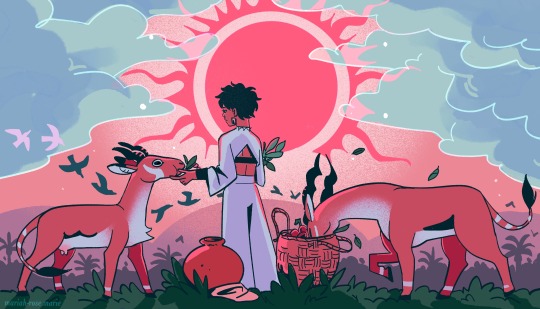
new thing for new business cards: some lush future Africa, de colon1zed & self determined, where the great green wall has grown thick and steady & date palms & mango trees could maybe share canopies, adapting to the new weather patterns & all hope is not lost
(see more things from me via my newsletter, patreon, or bluesky)
#tumblr why must you destroy the quality#art#illustration#climatechange#afrofuturism#africa#greatgreenwall#reforestation#ecology#solarpunk#antelope#goats#farm#farmlife#painting#concept#herding#design#sahel#sahara#desert#restoration#wildlife#sunset#landscape#sun#star#redgiant#mariah-rose marie
89 notes
·
View notes
Text
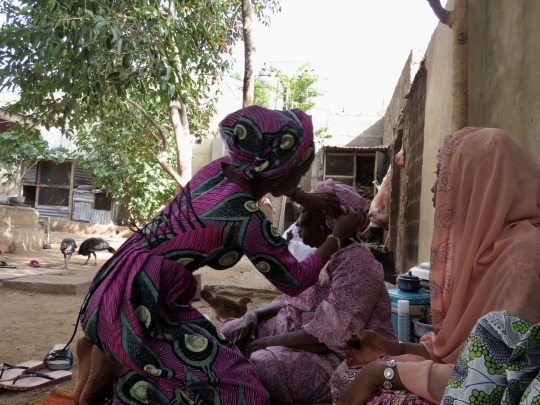


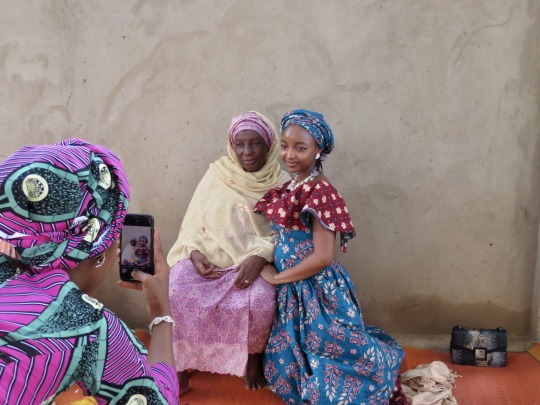
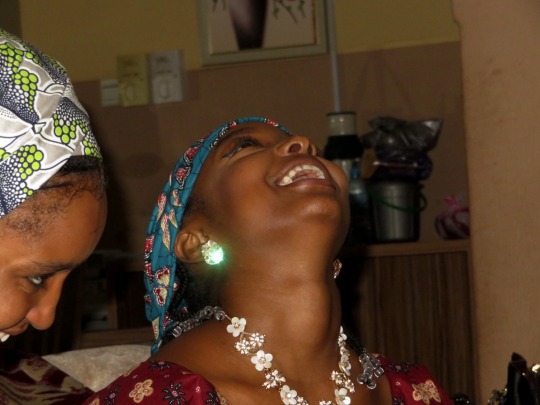
Yaya’s crib (my grandma) 2021 📸 creds Nafisah Muhtar
#stories notjustpictures#aesthetic#black girl aesthetic#black girl#black woman#black girl magic#black women#sisterhood#friendship#photography#muslimah#muslim#west africa#africa#black girls of tumblr#black girl blogger#black tumblr#sahelregion#sahel
29 notes
·
View notes
Text
so now that priggy and co had their impromptu sky diving lessons, wagner PMC is being folded into a kremlin agency. but guess what the new name is:
the afrika korps
you know, just like the nazis. given the wagnerites were already calling themselves musicians for being named after hitler's favourite composer who knows what they are gonna call themselves now.
this all means bad news for the sahel. russia is determined to use the new rounds of instability to plunder countries for all the mineral wealth possible and frankly are likely the cause of a lot of the unrest. anyone saying usa and europe out of africa without also saying russia and china too are selling north africa down the river
34 notes
·
View notes
Text


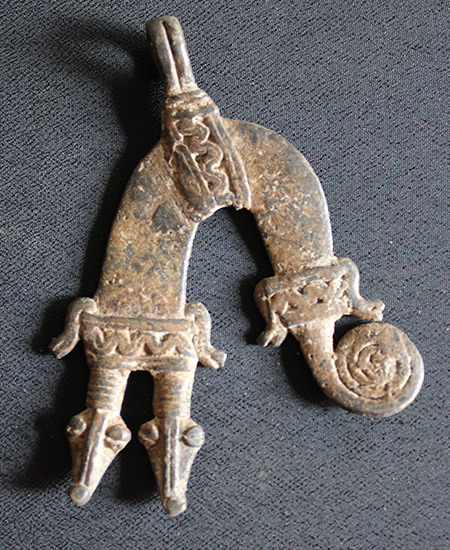






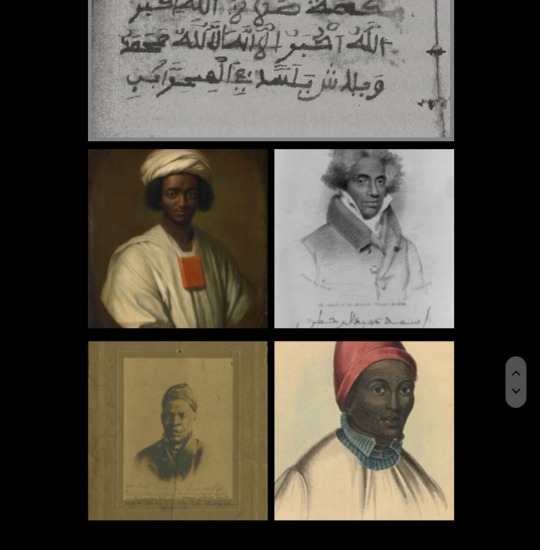
#sahel#sahelcore#mali#burkina faso#bambara#soninke#wolof#dogon#dogon door#Lobi#sahel aesthetic#senegal#fulbe#boubou#coiffure#west africa#the western sudan#l'afrique occidentale
55 notes
·
View notes
Text
Firewatch (March 2024 edition, Part 2)
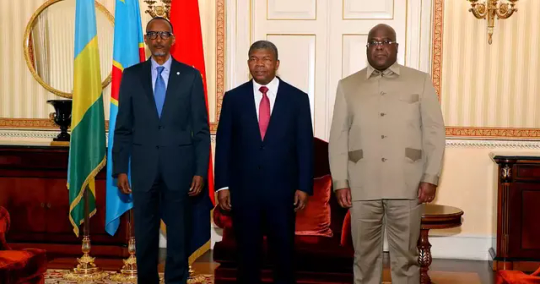
(This is Part 2 of my innagural edition of "Firewatch" becuase I was dumb and didn't realize what the character limit is. Read Part 1 here).
Full piece beneath the cut.
Smoldering Embers
These are the conflicts that, while not yet to the point where the flames are rising and heating up, smoke is starting to billow (or has been billowing) and there's potential for a real blaze to suddenly flare up at a moment's notice. You may have heard about them in the news here and there, but they're likely only popping up for your attention once in a blue moon because they haven't gotten bad or dramatic enough yet to fully grab the world's attention amid everything else going on.
West Africa/Sahel
The Sahel regions of West Africa are no stranger to crisis and conflict. Multiple countries in the region have already been dealing with internal political discord and armed conflict for years, but now multiple factors and various players seem to be converging in this part of Africa, positioning it to take a number of different paths forward in the coming months and years – few of which look very good.
West Africa and the Sahel are feeling a series of different pressures converging all at once. Since 2020, the region has seen a historic number of coup d'etats – both failed attempts and successful ones – which often come with a large amount of public support amid frustration with institutions and leaders that appear to be failing them. One reason for this frustration (among others that should be unsurprising, like economic troubles) is increasing amounts of instability throughout the region. Affiliates of both Al-Qaeda and the Islamic State both have footholds in the region, and are engaged in insurgencies against the governments of Mali (its most recent coup being in 2021, and also fighting a simultaneous insurgency by Tuareg separatists), Burkina Faso (most recent coup in 2022), and Niger (most recent coup in 2023), with Nigeria also dealing with a well over-decade old insurgency against Bokho Haram.
Niger's coup last year, in particular, seems to have been a watershed moment for the region and beyond. The country was strategically important both for its mineral resources (which unsurprisingly have not translated into economic and social development for the people of Niger themselves) and as a geographically well positioned outpost both for France (who's colonial legacy hangs heavily over the region) and the Untied States and other foreign powers, who all had troops stationed in the country to conduct counter-terrorism operations. The coup was seen as serious enough that the Economic Community of West African States (ECOWAS) issued an ultimatum to the Nigerien junta this past summer, threatening that if it did not cede power back to the elected President that ECOWAS would intervene to restore the legitimately elected government (as it has in the past).
Ultimately, the ECOWAS threats have not come to fruition and don't seem likely to – despite some apparent moves to do so in the aftermath of the coup. But out of those threats, Niger has joined into a new political and military alliance called the Alliance of Sahel States with both Burkina Faso and Mali (all of which had been suspended from ECOWAS due to their respective coups) to provide for collective self-defense against foreign intervention. Since 2023, French troops have been forced out of both Burkina Faso and Niger – with Niger now seemingly on the verge of doing the same to the remaining US troops in the country, while Vladimir Putin's Russia has seemingly been on a charm offensive to befriend the members of new alliance signing economic and military agreements and even reportedly dispatching troops – with mercenaries such as those from Wagner already having been active in the area (now operating under the new name of the "Africa Corps").
All these factors and more combined suggest that things in the Sahel are liable to get very interesting in the near future. As stated before, a number of different paths seem to unfold ahead for the region: if the ongoing radical insurgencies continue and are victorious, we could see a new territorial caliphate in West Africa and the Sahel mirroring that of IS in Iraq and Syria in the 2010s (and all the horrors that came with it). Barring that, as Russia deepens its ties to the AES, it could further turn the region into even more of a battleground in the multilateral Cold War we find ourselves in (as Russia is not the only authoritarian power seeking to deepen its influence in West Africa, as Turkey under Recep Tayyip Erdogan is also attempting to get involved there). Those are only two potential options out of many, and the myriad of other options in a region that is heavily populated and on the radar of multiple great powers means that it bears continued monitoring going forward.
The Democratic Republic of the Congo/Rwanda
Now this is one that I imagine is probably flying under the radars of most people who aren't deeper into my field, but is probably one of the most immediately pressing in Africa. The Democratic Republic of the Congo has been fighting against a rebellion by the armed group known as "M23" in its East for a decade now – that much isn't new. But now the conflict is threatening to turn onto a state-on-state war in Africa's Great Lakes region, as M23's primary back of neighboring Rwanda seemingly steps up its direct involvement into the conflict.
Rwanda has been backing M23 for some time now, with both Rwanda's government (under long-time President Paul Kagame) and M23 itself being primarily led by members of the Tutsi ethnic group. Rwanda also has a history of armed interventions in the DRC as well, so that in itself is not new. But in recent months the long-running tensions and low-level conflict between the DRC and Rwanda has threatened to boil over into outright, full-scale war, amid a series of fresh escalations – one prominent example being Rwanda firing on a DRC fighter-jet that it claimed violated its airspace. The high level of tensions has been further evidenced by more direct US involvement recently than is typically seen in this part of the world, with the United States and other governments attempting to broker some kind of peaceful resolution between the DRC and Rwanda. These efforts do not seem to have made much headway, with this past month the United States resorting to publicly urging both the DRC and Rwanda to "walk back from the brink of war." US mediation efforts may well be undermined, however, by it's (and many other Western countries') cozy relationship with Rwanda – despite its autocratic leader.
The trajectory for the current crisis remains unclear. A sideline meeting during the African Union summit in the Ethiopian capital of Addis Ababa appeared to make some progress in at least getting both the DRC and Rwanda to sit at one table and discuss a return to a peaceful dialogue to resolve their differences. However, that same day, the DRC accused Rwanda of having launched a drone attack in the city of Goma – a key objective of M23's advances, seemingly pouring cold war on the idea of constructive and peaceful reconciliation for the time being. Most recently, the DRC appears to be acquiring drones of its own, with China reportedly set to supply the DRC with nine CH-4 armed drones (apropos of nothing, China has also supplied a fair amount of military hardware to Rwanda in recent years, as well as military training).
With little other news available on the crisis since February (with other global events taking precedence), it remains unclear where things with the DRC and Rwanda go from here. There have been reports that the DRC and Rwandan leaders may be preparing to meet face-to-face once more, through mediation by Angola. At the same time, little seems to have changed with the personalities at play. DRC President Felix Tshisekedi was recently re-elected (under conditions labeled a "farce" by the DRC opposition), and has previously taken a hard line on the crisis, threatening to "march on Kigali" if re-elected and the issues with Rwanda persist. The DRC's acquisition of drones from China seems to reinforce that it has no plans of backing down in its confrontation with M23 and Rwanda, even if Tshisekedi doesn't follow through on his more bellicose threats. Meanwhile in Rwanda, Kagame announced his intent to seek a fourth term as President – amid criticism for lifting term limits in order to stay in office longer (criticisms that he has made clear he cares very little for if at all), and so has an impetus to maintain his own hard-line on issues with the DRC.
A further ticking clock has been added to the DRC-Rwanda situation by the fact that the United Nations mission in the Congo – which has been assisting the DRC fight against rebels (including M23) for almost two decades – will now be leaving the DRC by the end of 2024 at the request of the DRC government, stating that the force had not been able to resolve the war with M23. This comes after the DRC government also ordered troops from the East African Community (EAC) that had been present in the country as well to leave in late 2023 – for the same reasons it ordered the UN force to leave. While the DRC may well be right that neither force has helped it to beat M23, the withdrawal of these troops may very well shift the entire balance of the conflict and not necessarily in a way that the DRC wants. The South African Development Community (SADC), led by South Africa itself, is seeking to fill the gap left by the UN and EAC, but it remains to be seen how quickly they can do so and if they can change facts on the ground any more than the UN or EAC could. Once again, we see a number of potential factors on a collision course, and while cooler heads may still prevail, we see the prospect of yet another major war in the heart of Africa's Great Lakes regions that could have significant impacts for the people of the region, the continent, and the world. It is definitely worth keeping an eye on this developing situation (to the extent you can even find news on it).
Ethiopia
Ethiopia, like Myanmar, is a country that has shown up in the past when I've done a round-up on pertinent conflicts in the world. However, unlike with Myanmar, I'm afraid I can't report that things are getting better in Ethiopia's case or that there's much cause for hope at this point. In fact, things seem to be getting actively worse.
The last time I substantively talked about Ethiopia, the government of Prime Minister Abiy Ahmed was engaged in a war in the Tigray region against the Tigray People's Liberation Force – even allying with his former long-time adversary of Eritrea to do so in a war that threatened to rip the country apart while engaging in brutal authoritarian actions that I'm sure are making the Nobel Committee really regret giving him that prize in retrospect. After a seesawing of the fortunes of war back and forth for both sides, the conflict was seemingly brought to a close by the signing of a peace agreement between the TPLF and the Ethiopian federal government. All's well that ends well, done and dusted, right?
Well, actually: no.
Just less than a year after the Tigray War ended, Abiy apparently tripped over his dick into a new internal conflict in mid 2023, this time with Amhara people and forces in the eponymous Amhara region (Ethiopia's second most populous) rather than Tigray. The spark for this conflict was apparently born out of the haphazard way in which Abiy ended the previous one. One of Abiy's key allies in the Tigray War were militias and security forces from the region of Amhara, including an influential armed group known as the "Fano." However, the peace deal that Abiy struck with Tigray did not sit well with many Amahara people, who felt betrayed by the deal due to Tigray claims on their territory (as well as the fact that the Ethiopian federal military and security forces had been unable to prevent the TPLF from occupying Amahara territory during the war). This rift was only made worse by crackdowns by Abiy's government against the Fano, coupled with a plan to absorb Ethiopia's regional security forces into Ethiopia's federal military and security forces, which was not received well among the Amhara. These tensions and more came to a head from April through August 2023, with the result being Abiy's government facing down a fresh and ongoing revolt that doesn't appear to be ending soon.
The result of this bridge burning by Abiy has been a growing war in Amhara occurring under the umbrella of an ever prolonged state of emergency in Amhara that gives Ethiopian authorities broad powers to carry out arrests, impose curfews, and ban public gatherings. This is a continuation of the Abiy's playbook of gross human rights violations from the previous war in Tigray, with accusations being leveled against his government of arbitrary arrests, extrajudicial executions, and indiscriminate killings – including indiscriminate drone strikes against targets such as schools and public transit stations (apropos of nothing, once more, Abiy has acquired his fleet of armed drones from Iran, Turkey, and China – as well as purchasing new fighter jets from Russia). If you're wondering why you haven't heard more about all this, its because Abiy has made heavy handed use of another favorite tactic of his from the previous war (and that it has even used against Amhara in the past), which is information and specifically internet blackouts, which make it very difficult to get information out of Amahara as the conflict drags on (as it did in Tigray during that war).
Abiy's uncanny knack for burning bridges and making enemies isn't limited to within his own country, but has made tensions rise throughout East Africa. At the start of 2024, Abiy signed an agreement with the breakaway region of Somaliland in Somalia, which reportedly gives Ethiopia a naval port on Somaliland's coastline in exchange for recognizing the region's independence from Somalia (something that no other UN member state does). All of this appears to be part of Abiy's quest to regain Ethiopian access to the sea (lost after Eritrea became independent), which has included efforts to re-establish the Ethiopian Navy. The reaction to this deal has been, unsurprisingly, poorly received in Somalia, with Somali President Hassan Sheikh Mohamud even threatening the possibility of war if Ethiopia follows through with it and accusing Ethiopia of outright trying to annex part of Somalia. Somalis are not the only ones unease about Ethiopia's quest for access to the Red Sea, with other East African states such as Djibouti, Eritrea, and Kenya all having previously voiced concern about Ethiopian actions.
There's also the matter of Ethiopia's previously mentioned issues with Egypt over the Nile River, in particular Ethiopia's construction of a massive hydroelectric dam known as the Grand Ethiopian Renaissance Dam (or "GERD") on the river that Egypt worries could have a devastating effect on its water supply downstream if Ethiopia acts without considering Egyptian concerns. Despite numerous efforts to come to an agreement over the dam and the river, every attempt thus far has ended in failure, with Egypt continuing to refer to GERD an "existential threat." Egypt has also made it clear that it stands squarely with Somalia regarding the sea access debacle, with Egypt's autocratic President Abdel Fattah el-Sisi asserting that "Egypt will not allow anyone to threaten Somalia or affect its security," creating a fresh avenue for tension between Egypt and Ethiopia in addition to the GERD issue. This is all in addition to concerns that both Egypt and Ethiopia could be drawn into the aforementioned civil war in Sudan, with numerous potential negative consequences for all involved.
The long and short of things when it comes to Ethiopia, is you have no shortage of opportunities for more intense conflict in the near future, both within and around the country. Abiy's continued heavy handed approach to both domestic and foreign politics creates an ever increasing possibility that one day he will bite off more than he can chew, and potentially spark a conflict of such scale and scope that it could engulf all of East Africa in a major war and potentially even destroy Ethiopia – the second most populous country in Africa – as a polity. Given the potential consequences, this is a part of the world meriting very close observation going forward.
"Do You Smell Something Burning?"
In this final section, I want to touch briefly (as I've already gone on for a few thousand words) on some hot spots in the world that are cause for concern and have been for a while, but have nothing major going on at this moment in time. While they may be quiet (at least relatively speaking, compared to everything else we've just talked about), they have the potential to spark up in the mid to long term and become a problem once again.
The Korean Peninsula
By this point, we're probably all used to North Korea (under its dictator, Kim Jong-Un) shooting off missiles and making bellicose statements. That's par for the course for them. But in recent months, Kim and his government's rhetoric have taken a new and more hostile turn. North Korea has stated it has abandoned the idea of peaceful unification with the South, instead naming it North Korea's "principal enemy" which it will "annihilate" if it is provoked. This comes as North Korea continues weapons tests and conducts multiple military drills – with Kim often in attendance.
While I wouldn't worry about a continuation of the (yet unresolved) Korean War just yet, this may well be cause for concern. While tensions are typical on the Peninsula, we haven't seen rhetoric like this from the North in quite some time. And while full-scale war may be unlikely at this moment (though not impossible), 010 showed us that under the right conditions, the Peninsula is never far from violent skirmishes and incidents between the two Koreas, such as the shelling of Yeonpyeong Island and sinking of the South Korean Navy corvette Cheonan. While wider conflict was avoiding in those cases, now that South Korea has a more reactionary President wanting to present a hard line towards the North, it raises questions about it may react to provocation. Again, while I wouldn't be panicking just yet, it may be worth keeping your ear to the ground on this one to keep from being caught unawares if tensions suddenly spike further.
Armenia and Azerbaijan
Well, they finally did it. I've also written about this conflict several times now, and it looks like by all accounts, Azerbaijan has gotten exactly what it said it wanted. After the world stood by and did largely nothing in its 2020 war against the ethnic-Armenian enclave of Artsakh (AKA: Nagorno-Karabakh), Azerbaijan decided to finish the job once and for all with a fresh offensive on the heels of a nine-month blockade this past year. With next to no prospect of outside assistance, and weakened by the blockade, the Artsakh forces quickly folded, and almost the entirety of the ethnic Armenia population promptly fled in the ensuing days and weeks to avoid violence at the hand of Azeri forces, leaving Azerbaijan free to complete its cultural genocide of the region. But now that its over, surely Armenia and Azerbaijan can find a way to live in peace with this new reality? Right?
Ha ha, no.
In what should be surprising to absolutely no one, Azerbaijan has celebrated getting what it wanted in Artsakh by shifting the goal post once more. Now its new demand is a land corridor connecting it to its ethnic exclave of Naxcivan on the opposite side of Armenia – referred to as the "Zangezur Corridor" (after the Azeri name for the Armenian Syunik province that it would pass through). Armenia seems highly unlikely to agree to such a demand, which it views as an unacceptable infringement on its sovereignty, which likely means – as has been the case after every war fought between these two countries in the past – a new war is almost certainly on the horizon as Azerbaijan will not stop until an outside force compels it to stop and will use the Armenian rejection as an excuse for fresh conflict. 2024 has already seen fresh skirmishes on the border between the two countries, showing that the tensions remain very much present.
It's not clear when this new war will occur, but we can only hope that in the interim more nations step up to actually assist Armenia. We have seen hopeful signs of greater support from other countries, with France and India selling arms to the country to help it defend itself. However, I can't take any of that for granted, with how the world has left Armenia out to dry time and time again. If Azerbaijan does decide to go to war for a land corridor, it also risks potentially sparking a wider regional war, as Iran has called such an action to cut off its land border with Armenia a "red line" (though whether or not it would really take military action in response remains unclear). Anyway, keep your ears to the ground on this one, because like with the other wars Azerbaijan has launched it'll likely come out of the blue.
I'm Very Tired.
I've just thrown a lot of information at you, so I'm going to try and keep this conclusion short and sweet (for me). First, I'll lay out a few takeaways about the wider world situation, and then some general closing thoughts.
Looking at the general state of things with the conflicts I've laid out, I'm going to infer a few things about the general state of global security. For one, Africa is in a dire state in multiple regards and seems to be the biggest place to watch for trouble on the horizon at the moment, as it has several crises that seem ready to boil over into major wars in the near future – if they haven't already in some cases. These crises and conflicts have the potential to pit some of the most populous countries on the continent against one another, and also to rip some of those same countries apart internally. Short of that, Africa is also seemingly getting teed up to be the sight of a new round of intense great power competition for influence and resources the likes of which we haven't seen since the Cold War, with said competition not just involving big players like the United States, Russia, or China, but attracting newcomers to the influence game too – as the UAE's involvement in Sudan's civil war has shown. Finally, it's also worth noting that now that we're in a post-Russian invasion of Ukraine world where large scale state-on-state conflict is back on the menu after many "experts" thinking it was dead and gone, it makes some of the fault lines we're watching here even more important to keep a close eye on.
There's almost certainly more that I say here, but these are just some big overarching themes to take away from this round of observation. Now, for the closing thoughts:
I know you're tired. We all are. I am.
That being said, we can't give up in our fight for a better world for everyone living in it. That requires remaining well informed (to the extent that you're able) about what's going on in that world. This is especially true if your government is playing a role in it (for good or for bad), or it isn't and it should be. Information is, in its own right, power.
I know that your emotional energy is precious, and likely being eaten up but a number of different things at any given moment. I'm not ask you to drop everything and devote all your time and energy to these causes or others, nor am I trying to shame you for not paying as close attention to them as I or others have. Simply, to add them to the Rolodex of your brain as something that matters and that you should check in on once in a while so you're not caught unawares when new developments occur that may affect you and others.
There's only so much that all of us can do about any one issue, either at home or abroad. But we do what we can, and in order to do that, we need to have an idea of what's going on. So take that as you will after reading all this (or anything else that I write or post, for that matter).
On that note, I'll let you get back to whatever else you need to do. But thank you for taking the time to read this and potentially learn more about events you may not have known much about and their potential impacts. I'll hopefully see you again for my next essay, but in the meantime: stay safe out there and don't give up.
Photo credit: africanews/AFP.
#War Takes#War Takes essay#War Takes Firewatch#West Africa#Sahel#Niger#Burkina Faso#Mali#Democratic Republic of the Congo#Rwanda#Ethiopia#Armenia#Azerbaijan#South Korea#North Korea#war#international relations#foreign policy#defense#security
21 notes
·
View notes
Text
What's happening in Africa in 90 seconds: the coup in Niger, France's declining neocolonial hold, and the possibility of African union in the Sahel
61 notes
·
View notes
Text

“Function follows form in the Sahel”
73 notes
·
View notes
Text

The Haratin , also spelled Haratine or Harratin, are an ethnic group found in western Sahel and southwestern Maghreb. The Haratin are mostly found in modern Mauritania (where they form a plurality), Morocco, Western Sahara, and Algeria. In Tunisia and Libya, they are referred to as Shwashin.
The Haratin speak Maghrebi Arabic dialects as well as various Berber languages. They have traditionally been characterised as the descendants of former Sub-Saharan slaves
The Haratin form an ethnic group distinct from Arab and Tuareg populations, as well as from the contemporary ethnic groups of sub-Saharan Africa. In Mauritania, however, where there are nearly 1.5 million Haratin, they have developed a separate sense of ethnic identity.
During the Roman occupation of Mauretania, the Godala Berber tribe fled to the south towards the Draa oasis and enslaved the local Haratin population. They have historically inherited their slave status and family occupation, have been endogamous, and socially segregated. Some communities differentiated two types of slaves, one called 'Abid or "slave" and Haratin or "freed slave". However, per anthropologist John Shoup, both 'Abid and Haratin were not free to own land or had equivalent property rights. Regardless of whether they were technically free or not, they were treated as socially inferior in the communities they lived in. Being denied the right and the ability to own any land, they historically survived by accepting a patron-client serf relationship either as domestic servant or as share-cropping labor (khammasin).
They became a common target of mandatory conscription by the Moroccan ruler Ismail Ibn Sharif as he sought to build a military that had no social or cultural attachment to any other Arab or Berber group in Maghreb. He conscripted the majority of able-bodied male Haratin and 'Abid that were present in Morocco at the time. This army was then commonly coerced into a series of wars in order to consolidate Ibn Sharif's power

#african#afrakan#kemetic dreams#brownskin#africans#afrakans#brown skin#african culture#moroccan#ismail ibn sharif#haratin#abid#khammasin#north africa#north african#alegria#sahel#sahara#tuareg#arab#tunisa#libya#shwashin#mauritania
33 notes
·
View notes
Text
youtube
Bon Soir 🆕️ 🎸🪘 💙
Bombino 🎶 Ayo Nigla (Francais)
(Sahel)
#new music#bombino#blues touareg#video clip#ayo nigla#world music#guitare acoustic#sahel#clip music video#youtube#bon soir#fidjie fidjie
21 notes
·
View notes
Photo
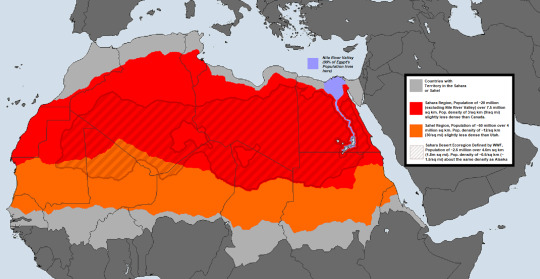
The Sahara Isn't Empty: Populations of the Sahara Desert, Sahara Region and the Sahel
181 notes
·
View notes
Text


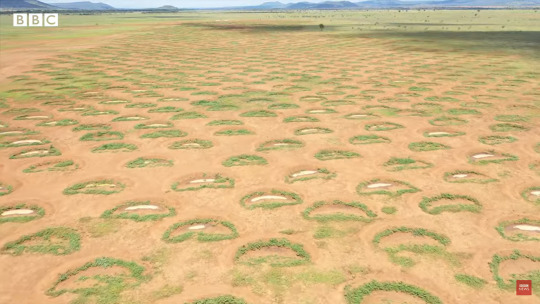

Half-moons: The Maasai secret weapon - BBC Africa
Kenya’s Masaai community are using a clever technique to reap big rewards in the fight against climate change. Little ‘half moons’ dug into farmland – otherwise known as ‘water bunds’ - capture rainwater, allowing it to sink into the ground instead of washing away. And that means seeds can actually take root and vast areas of land can once again turn green. Maasai conservationist Lanoi Meitiekini explained to the BBC how it works.
—
[These are also known as semi-circular bunds or zai pits (though these are typically smaller), and efforts like these are taking place across the Sahel region (the areas bordering the south side of the Sahara Desert]
5 notes
·
View notes
Text


Local life in Kano. SB Nafisah Muhtar
1. At the market
2. The beauty salon
#stories notjustpictures#film preset#aesthetic#photography#african culture#african photography#black girl aesthetic#black girl#black woman#black girl magic#black women#friendship#editing#west africa#sahelregion#sahel#black girls of tumblr#black girl joy#black tumblr#film photography#film
18 notes
·
View notes
Text

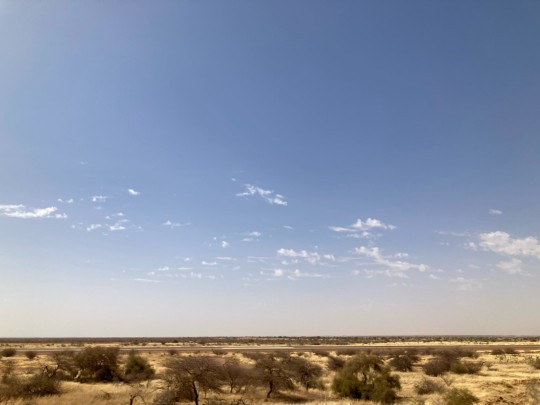
a felhők most inkább hiánycikk itt a Szaharában, de a keveset, ami van, begyűjtöttem, @internal-nonsense.
35 notes
·
View notes
Text
The zaï technique: How farmers in the Sahel grow crops with little to no water
8 notes
·
View notes